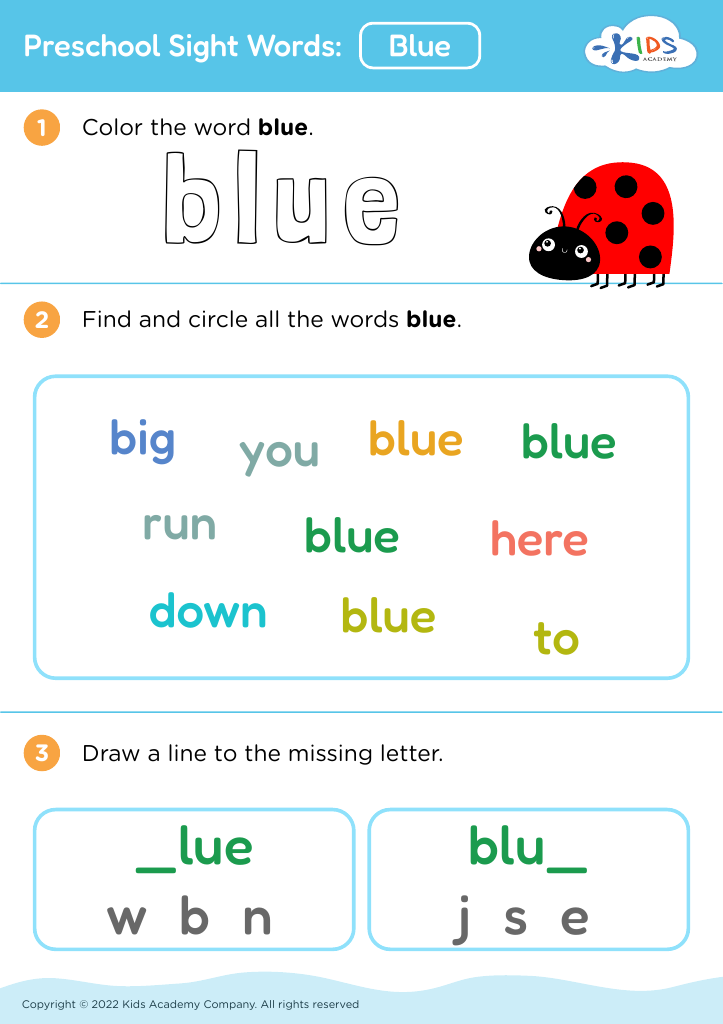Improve counting skills Building Vocabulary Worksheets for 3-Year-Olds
3 filtered results
-
From - To
Enhance your child's numeracy and language skills with our "Improve Counting Skills Building Vocabulary Worksheets for 3-Year-Olds." Designed specifically for early learners, these engaging printables combine fun counting exercises with vocabulary-building activities to ensure a well-rounded educational experience. Easy to use and beautifully illustrated, our worksheets help young children recognize numbers, develop counting proficiency, and expand their vocabulary. Ideal for parents and teachers, these resources make learning enjoyable and effective, fostering a strong educational foundation. Visit Kids Academy to explore our comprehensive collection of printable worksheets and give your 3-year-old a head start in their learning journey.
Parents and teachers should prioritize improving counting skills and building vocabulary for 3-year-olds because these foundational skills are crucial for cognitive development and future academic success. At this age, children's brains are particularly receptive to learning, making it an ideal time to introduce basic math and language concepts.
Improving counting skills introduces children to essential math principles, like number recognition, order, and quantity, setting the stage for more complex mathematical thinking. Mastery of basic counting can boost a child's confidence and make future math lessons less intimidating.
Building vocabulary, meanwhile, enhances communication skills, fostering better expression of thoughts and emotions. A rich vocabulary aids comprehension, enabling children to understand stories, instructions, and questions more effectively. This early language development spurs reading readiness, contributing to later literacy and education achievements.
Moreover, both counting and vocabulary skills directly impact social interactions. They help children follow routines, articulate needs or preferences, and share experiences. Engaging with numbers and words through playful activities also strengthens parent-child and teacher-student bonds.
Therefore, focusing on counting and vocabulary development for 3-year-olds isn't just about academic preparation; it's about nurturing well-rounded, confident individuals ready to explore and engage with the world around them.


































